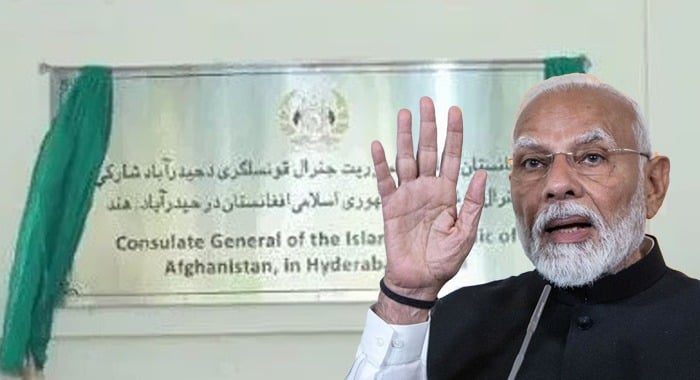In a significant yet quietly executed diplomatic move, India has transferred control of the Afghan consulate in Hyderabad to a Taliban-appointed representative, according to sources within the Taliban’s Foreign Ministry. The handover, reportedly finalised in June 2025, marks a deepening of informal engagement between New Delhi and the de facto rulers of Afghanistan.
Sources confirmed that Mohammad Rahman has been appointed as the Taliban’s official representative at the Hyderabad consulate. Meanwhile, Sayed Mohammad Ibrahimkhel, who served under the previous Afghan government, has been reassigned to the Afghan Embassy in New Delhi, where he continues to act as chargé d’affaires.
Indian media reports also verify that Rahman assumed charge of the Hyderabad consulate in June, following a similar handover in Mumbai last year, where Ikramuddin Kamil, another Taliban-appointed diplomat, was given control of the mission.
An Indian official, speaking on condition of anonymity, said these appointments reflect the Taliban’s aim to broaden diplomatic presence and deepen ties with India. The official further suggested that control of the Afghan embassy in New Delhi could be formally transferred to the Taliban by the end of the year.
Sources also indicate the possibility of a high-level Taliban delegation visiting India next month—a visit that, if confirmed, could represent a major step toward formalising India-Taliban diplomatic engagement.
Geopolitical and Security Ramifications; A Pakistani Perspective
India’s quiet handover of Afghan diplomatic missions to Taliban-appointed representatives reflects a reactive policy shift rather than a position of strategic strength.
From Islamabad’s standpoint, the move underscores New Delhi’s desperate diplomatic catch-up in a region where it has largely remained on the margins since the Taliban’s return to power, particularly in the wake of its humiliating setbacks during Marak-e-Haq and Operation Banyan al-Marsoos.
Pakistan’s Strategic Foresight Confirmed
Pakistan, unlike India, has maintained consistent engagement with all Afghan stakeholders, based on ground realities and regional stability needs. India’s latest turn toward accepting Taliban-appointed diplomats tacitly affirms Pakistan’s early and accurate reading of post-2021 Afghanistan.
New Delhi’s Policy Contradictions
India, once a vocal critic of the Taliban, is now quietly accommodating their representatives—a shift that exposes strategic inconsistency and desperation to maintain relevance. Pakistan, on the other hand, has remained firm in its principles, advocating engagement to prevent instability and secure its borders.
No Security Surprise for Pakistan
India’s diplomatic overtures to the Taliban do not pose a new threat to Pakistan. Instead, they reinforce the need for continued vigilance, especially considering India’s past activities via Afghan territory. Pakistan’s security institutions remain highly alert and capable of countering any potential misuse of diplomatic presence.
India’s Shrinking Regional Influence
With no land access to Afghanistan, limited influence among Afghan factions, and growing isolation in regional dialogues, India’s last-ditch efforts to engage the Taliban appear more symbolic than strategic. Pakistan, with historical, cultural, and geographical ties, continues to be the central player in Afghan affairs.
Pakistan: A Pillar of Stability
Through consistent diplomacy, counter-terror operations, and humanitarian efforts, Pakistan has cemented its role as a regional stabiliser. As India adjusts to new realities, Pakistan is already deeply engaged in shaping them, on secure footing, with firm policy direction.
India’s quiet handover of Afghan consulates to Taliban envoys is less about influence and more about playing catch-up in a region where Pakistan has long held strategic depth and trust. As New Delhi recalibrates its approach, Islamabad continues to lead from a position of clarity, readiness, and regional relevance.





